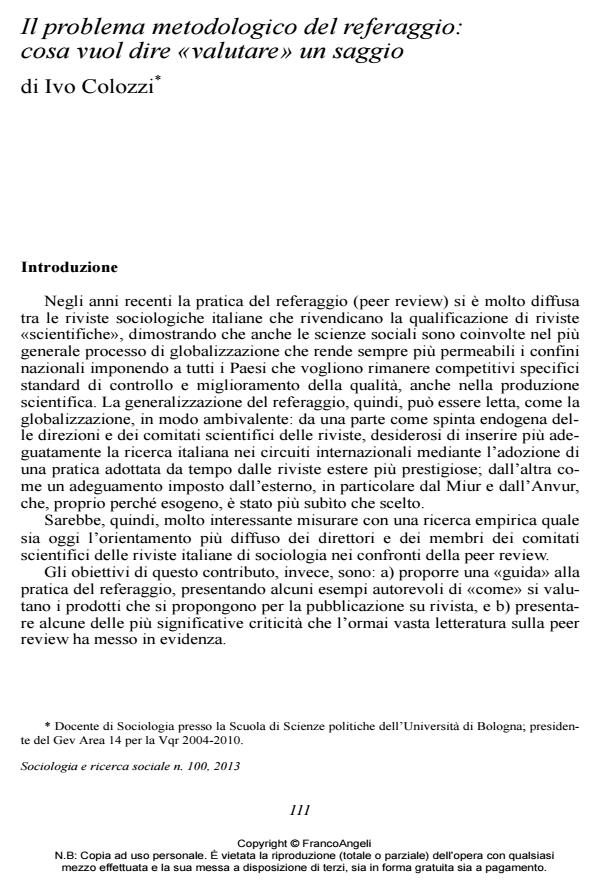The Methodological Problem in the Evaluation of Scientific Publication: What it Means to «Evaluate» a Scientific Essay
Journal title SOCIOLOGIA E RICERCA SOCIALE
Author/s Ivo Colozzi
Publishing Year 2013 Issue 2013/100
Language Italian Pages 11 P. 111-121 File size 627 KB
DOI 10.3280/SR2013-100011
DOI is like a bar code for intellectual property: to have more infomation
click here
Below, you can see the article first page
If you want to buy this article in PDF format, you can do it, following the instructions to buy download credits

FrancoAngeli is member of Publishers International Linking Association, Inc (PILA), a not-for-profit association which run the CrossRef service enabling links to and from online scholarly content.
The paper proposes first a «guide» to the practice of refereeing, presenting some prominent examples of «how» are evaluated the products submitted for publication in journals. The examples allow understanding what are the procedures used and the profiles on which assessment is required (originality, structure, data correctness, accuracy of references, etc.). Are then presented some of the most significant problems that the vast literature on peer review has highlighted, in particular: how effective it is, that is able to detect misconduct (falsification of data, plagiarism, etc.), how much is fair, that is able to avoid the creation of systematic discrimination against certain groups of researchers or nonconventional shapes and innovative research, how efficient, ie not responsible for slowing the spread of new research and overloading the best researchers.
Ivo Colozzi, Il problema metodologico del referaggio: cosa vuol dire «valutare» un saggio in "SOCIOLOGIA E RICERCA SOCIALE " 100/2013, pp 111-121, DOI: 10.3280/SR2013-100011